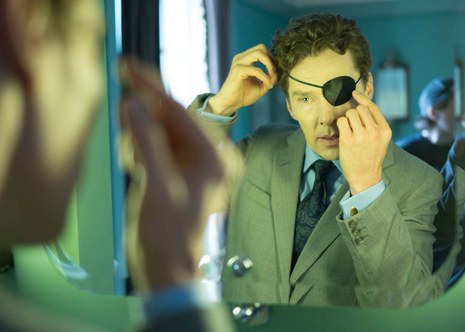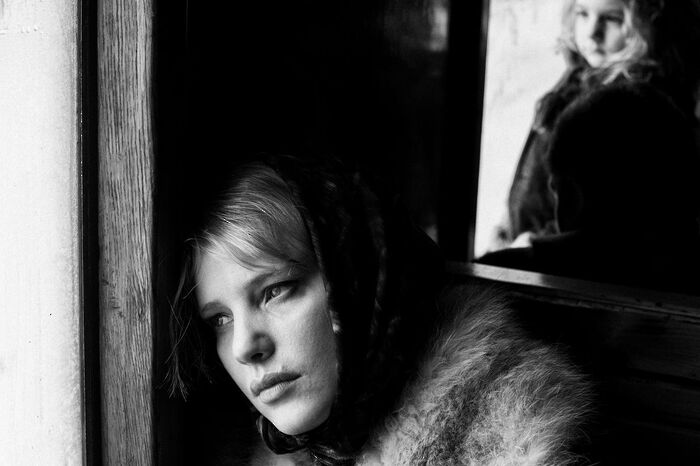Patrick Melrose and the lies we tell ourselves
Tia Dinescu explores the aftereffects of childhood trauma portrayed in this Emmy-snubbed series

Patrick Melrose is a TV series based on Edward St Aubyn’s five-part novel series. It follows the life of the titular character (Benedict Cumberbatch) as he comes to terms with the abuse of his father David (Hugo Weaving) and the neglect of his mother Eleanor (Jennifer Jason Leigh). The show is an uncomfortable exploration of the results of this traumatic childhood, portraying the build-up of resentment, relational difficulties and substance abuse that populate and haunt Patrick’s adult years.
There is a fine line between managing a lifestyle to help you finish university and a lifestyle that will finish you
Patrick Melrose has already received lavish praise formally as well as informally, having been nominated for five Primetime Emmys this year. It should come as a surprise, then, that the first episode of this critically acclaimed show is tasteless. The pilot deals with substance abuse portrayed in excruciating detail in lengthy scenes dedicated to drug-fuelled frenzies and trip-induced traumatic flashbacks. The problem with seeing this pure display of all-consuming pain and self-absorption without first having had Patrick’s anguish contextualised makes it hard to empathise with him right away, which leaves him looking shallow and pathetic — it is only in the second episode that we are introduced to the trauma of Patrick’s childhood.

I enjoyed how pain is accompanied by tremendous amounts of dark humour and cynicism as Patrick pretends to have everything under control, or at least so he remarks during several conversations with different imagined personas. I can certainly empathise with Patrick. There is a fine line between managing a lifestyle to help you finish university and a lifestyle that will finish you. I feel that most poignantly when I find myself having two minute microwavable Sainsbury’s meal at 3 am on a Saturday night (dinner or breakfast, take your pick), and it dawns on me that the last time I interacted with another human being was Wednesday. My inner monologue takes off — “I’ve absolutely got this!” — but I’ve had to learn that this is a false sense of control. The series’ soundtrack composed by Hauschka, aka Volker Bertelmann, amplifies this concept that the sense of self-control is an illusion with fast-paced, thrilling pieces such as ‘Martinis and Tartar’ and ‘First Taxi Trip’, a relatively upbeat, neatly-paced tune that almost ironises Patrick’s hysteria.
The show sets out to dissipate forcefully the idea that society is constructed around class
The seeds for future psychological development are planted, nonetheless, and the payoffs start flourishing as the show dives bravely into the uncomfortable truths of the psychology of abuse. This is exemplified by Patrick’s attempts to understand a plethora of feelings left unexpressed towards his father after his death, ranging from loathing to pity. This makes for a spectacular display of emotional acrobatics on Benedict Cumberbatch’s behalf; a stellar performance is also delivered by Sebastian Maltz, who plays young Patrick. Each episode focuses on a central event which adds to the overarching exploration of maturation and forgiveness.
The show manages to balance being honest about psychologically and socially heavy topics while remaining an overall hopeful study of human resilience
The visuals, coordinated by James Friend, have great psychological impact, and I truly appreciated the attention paid to creating atmospheric environments. One example of this is the Melrose’s summer residence with its eternally sunny, brightly coloured vistas which make it enchanting, even after we find out about the suffering that it houses. I found the discrepancy between the bright facade and the quiet awareness that this is where most of Patrick’s abuse took place deeply unsettling, and the cinematography is coordinated very effectively to that end. Even when the visuals are not used in an equally purposefully manner, they are quietly beautiful nonetheless, giving the drama the space it needs to unfold organically.
The show sets out to dissipate forcefully the idea that society is constructed around class. The characters that populate the clique of upper-class British aristocracy can be seen as social stereotypes in themselves. They are associated with an old, dying generation, characterised by shallowness, cynicism, elitism and bigotry (somewhat similar to some Cambridge drinking societies...) With the end of this generation, the new one tries to embrace more authentic values like emotional sincerity. I am a big fan of the way in which this idea is presented, especially in the final episode, because the last point along Patrick’s arch of maturation coincides somewhat with the death of one of his father’s last friends, ending symbolically an era of Patrick’s life. This episode is bittersweet and feels like a truly cathartic moment in the series, without becoming idealistic or romantic in the least; it is beautifully worked up to and delivered with great elegance.
Perhaps one of the things that stood out to me most was how well the show manages to balance being honest about psychologically and socially heavy topics while remaining an overall hopeful study of human resilience. The show is definitely worth a watch for how wonderfully crafted it is, daring to be shockingly funny as well as heartwarmingly sincere when the human spirit is portrayed at its most vulnerable.
 News / Meta opens £12 million lab in Cambridge 11 July 2025
News / Meta opens £12 million lab in Cambridge 11 July 2025 Lifestyle / Reflections on rowing10 July 2025
Lifestyle / Reflections on rowing10 July 2025 News / Write for Varsity this Michaelmas13 July 2025
News / Write for Varsity this Michaelmas13 July 2025 Features / How to catch a coat thief13 July 2025
Features / How to catch a coat thief13 July 2025 Comment / What is originality, anyway? 14 July 2025
Comment / What is originality, anyway? 14 July 2025









